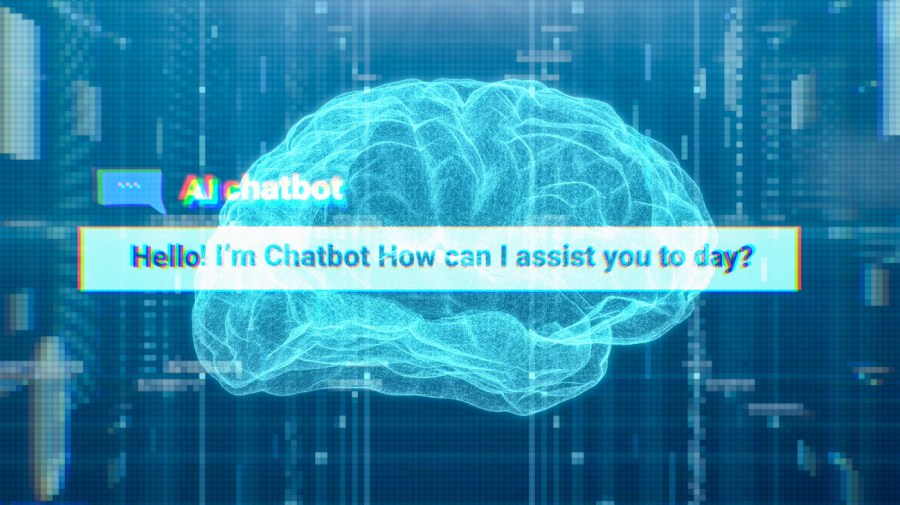
Worker productivity gains enabled by artificial intelligence (AI) are concentrated at the lower end of the skills and income spectrum, a phenomenon that economists and unions warn could exacerbate the practice of outsourcing jobs to lower-paid regions of the world. could give impetus.
Several recent studies show that introducing language-based AI software into the workplace benefits less-skilled workers more than highly-skilled workers, which could make lower-skilled work more valuable and attract more higher-paying jobs abroad.
“If you take the case of generative AI helping especially low-skilled workers, that gives companies the opportunity to replace more skilled workers with less skilled, lower-paid workers,” Carl Benedikt Frey, an economist at the University of Oxford, told The Hill .
“It could even be possible [lead to] There is a significant wave of offshoring as companies begin to take advantage of the large amounts of cheap labor in countries such as India, Bangladesh and the Philippines, where there are huge wage gaps,” he said.
Not only do AI programs like ChatGPT increase overall worker productivity, they also reduce the gaps between better workers and less productive workers, essentially homogenizing the workforce.
“Worker inequality is declining because ChatGPT compresses the productivity distribution by increasing the benefits of low-power workers,” concludes a Massachusetts Institute of Technology (MIT) study led by Shakked Noy and Whitney Zhang, published last year. published.
Another 2023 study from Stanford and MIT found that while overall productivity increased by an average of 14 percent as a result of generative AI, it increased by 34 percent among less experienced workers. That study by Erik Brynjolfsson and Lindsey Raymond looked at cases where AI helped improve productivity and employee experience, especially in outsourced environments such as call centers.
The authors noted that their results were consistent with other studies, all of which found that generative AI systems “[compressed] the productivity distribution, with low-skilled workers benefiting most.”
Policymakers are already starting to sound the alarm about the long-term effects AI could have on the labor market.
Kristalina Georgieva, head of the International Monetary Fund (IMF), said on Monday that AI is hitting the global labor market “like a tsunami,” according to Reuters.
She said AI could impact as many as 60 percent of jobs in advanced economies and 40 percent of the global labor market over the next two years.
U.S. labor unions are increasingly concerned about the pace of technology adoption and its degree of integration into the production process, as well as the fact that entrepreneurs are pushing through these changes without consulting their workers.
“Employers are deploying increasingly sophisticated AI-enabled technologies without employee consent to hire, monitor, evaluate, discipline and even fire workers,” the AFL-CIO, the nation's largest labor confederation, said in a statement. a recent statement.
After a strike last year, entertainment workers at the Writers Guild of America received assurances from studios that AI would not be allowed to write literary material and that AI-generated work would not be considered source material.
However, such guarantees may be undermined as consumption habits increasingly shift to social media and other online platforms that do not maintain employment contracts with content creators.
The standardization of productivity delivered by AI and the resulting opportunity it offers companies to reduce their overhead and outsource their labor could exacerbate a phenomenon known as the productivity-wage gap, which has been around since the beginning of commercial calculations is underway.
While fears of mass unemployment due to computers proved unfounded, the gap between how much workers produced and how much they were paid has become bigger since the 1970s, although it really took off in the 1990s and 2000s.
American workers have increased their hourly output by about 140 percent since 1973, while inflation-adjusted employee compensation has increased by only 45 percent over the same period. That means employees are paid much less compared to the amount of additional value they create for employers. The size of the gap varies depending on the inflation measure used, but it persists regardless of how it is calculated.
Over roughly the same period, the total share of the economy devoted to compensating work, as opposed to returning profits to shareholders, has fallen from 64 percent of gross domestic product (GDP) to 59 percent in 2019. Meanwhile the profit share has doubled. , rising from 4 percent of GDP in 1974 to 8.5 percent in 2022.
Although significant changes to the U.S. tax code have been implemented during that period, along with new labor and trade practices associated with globalization, the coordination of production across international borders, made possible by widespread technological adoption, has also been a been a factor in the productivity-wage gap.
“It was useful to be at the forefront of the computer revolution [to the United States] in terms of productivity, but we also see a growing gap between productivity and wage growth since the 1980s,” said Oxford-based Frey, who attributes the split to increased offshoring and more brutal automation of production processes.
As for which jobs could eventually become extinct as a result of generative AI, Frey cited work that involves repetitive tasks in structured environments as the tasks most likely to be automated. That includes transportation, logistics and warehousing work, with much of the labor performed in highly regulated processes.
Jobs that could see increasing wage stagnation due to outsourcing include software design, computer programming and content creation, such as in the field of animation, where countries such as South Korea and Canada produce a significant amount of American animation content.
While the work of physical and intellectual production may be subject to increasing automation due to AI, the prospect is of a fully automated business, in which management functions such as pricing and making acquisitions are also automated.
“It depends a lot on the type of business we're talking about and all the activities involved, but I definitely see parts of that being automated,” Frey said.











